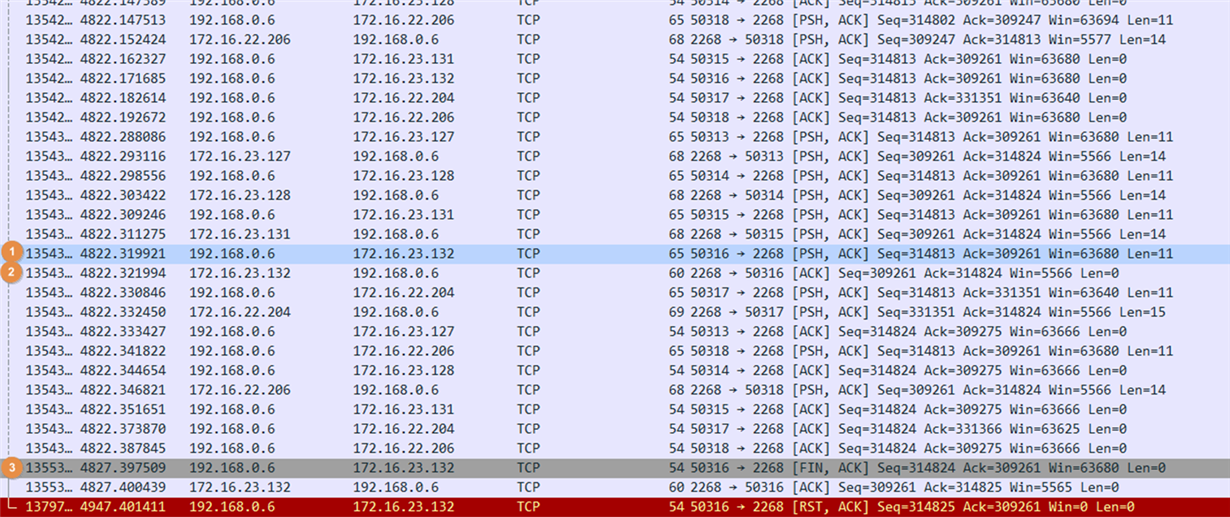Other Parts Discussed in Thread: TM4C129ENCPDT
HI,
I have a problem, I use TM4C1294+non-OS+LWIP.
Because the original settings make TCP transfer slow,
I adjusted to 5ms, the code is as follows: (although this adjustment is really bad)
tcp_impl.h
#ifndef TCP_TMR_INTERVAL //#define TCP_TMR_INTERVAL 250 /* The TCP timer interval in milliseconds. */ #define TCP_TMR_INTERVAL 5 #endif /* TCP_TMR_INTERVAL */
There are also polling sys_check_timeouts() every 5ms, in the lwIPServiceTimers().
Currently, every 5~10ms, the PC will communicate with the board once, and most of them run well.
But there will be a timeout in about an hour. (wireshark is shown below)
(1) The PC sends the query command to the board.
(2) Board reply ACK
(3) PC software can't wait for response data, perform close connection
May I ask what might happen?
Thank you.



